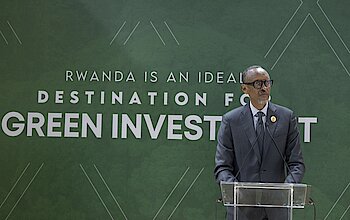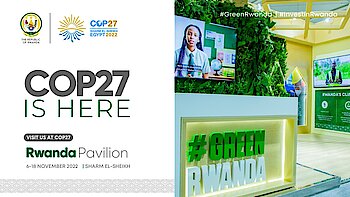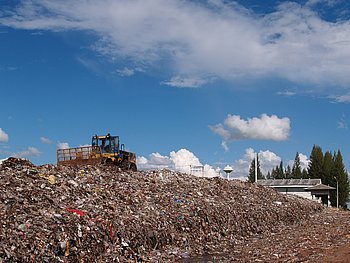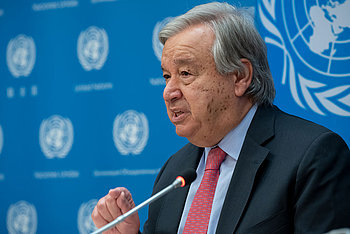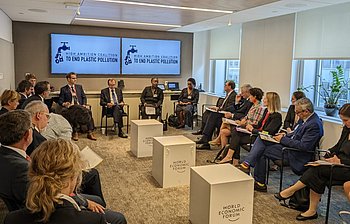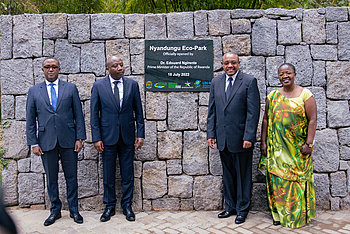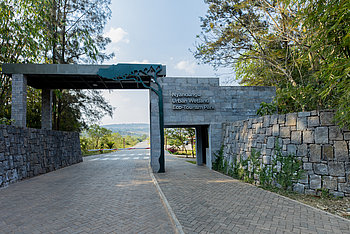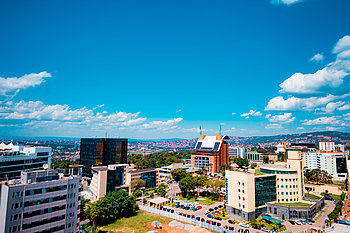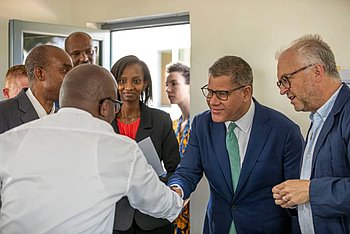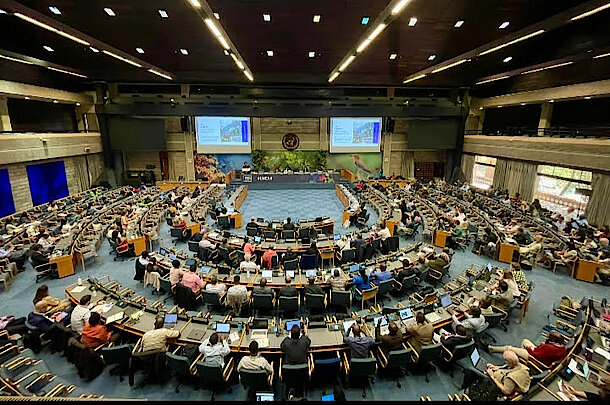
Tackling Short-Lived Climate Pollutants: Insights from CCAC2024 Conference
The Climate and Clean Air Conference 2024 (CCAC2024), took place in Nairobi, Kenya, on the sidelines of the Sixth session of the United Nations Environment Assembly (UNEA-6). this conference brought together stakeholders from across the globe to address the pressing issue of short-lived climate pollutants (SLCPs). SLCPs, including black carbon, methane, tropospheric ozone, and hydrofluorocarbons (HFCs), are potent contributors to global warming, despite their shorter atmospheric lifespans compared to carbon dioxide (gas that contribute to the increase of temperature in atmosphere).
This short-lived climate pollutants is responsible for up to 45% of current global warming, demand urgent attention. If left unchecked, they could account for as much as half of the warming caused by human activity in the coming decades. Recognizing this critical challenge, the Climate and Clean Air Coalition (CCAC) supports countries to reduce short-lived climate pollutants emissions across sectors by 2030, while advocating for elevated ambition and advancing the latest in policy-relevant science.
Rwanda being a member of the CCAC, has committed to reducing global methane emissions by 30% by 2030 compared to 2020 levels. This commitment reflects Rwanda's dedication to mitigating climate change and its adverse effects on the environment, economy, and public health.
The Conference brings together the CCAC's 86 State Partners and 83 Non-State Partners to discuss the latest science and policy, share best practices, and develop a shared agenda in key emitting sectors like agriculture, waste, fossil fuels, household energy, heavy-duty vehicles and engines, and cooling. This conference will move the dialogue forward, focusing on the cost of inaction, highlighting ways to further scale up implementation of the Global Methane Pledge, Clean Air Flagship and Kigali Amendment, and collectively charting the course to 2025 and beyond.
The Conference features the high-level plenary sessions on global, regional and national efforts to reduce methane, black carbon and hydrofluorocarbons, including the benefits of fast action, national policy and planning, and financing for implementation; science policy dialogue sessions on latest emerging science and how new information can inform policy development; technical sessions among CCAC sector hub members to showcase best practices in key emitting sectors: agriculture, cooling, fossil fuels, heavy-duty vehicles and engines, household energy, and waste.
The three themes addressed in this year’s conference are economic opportunities and the cost of inaction; leveraging finance to scale up implementation; and looking forward to 2025. In this conference, each of the six CCAC Sector Hubs will meet in back-to-back sessions to address key issues facing each sector, and will provide countries and non-state actors to discuss ways to overcome barriers and achieve implementation.
Rwanda as a member of CCAC, has received the support from CCAC to develop a National SLCPs action plan and a National Methane Roadmap. The development of National short-lived climate pollutants action plan is expected to strengthen the institutional capacity of multiple government authorities, affiliated agencies and key stakeholders to drive short-lived climate pollutants mitigation actions. The development of National Methane Roadmaps will serve as input to Rwanda’s 2025 Nationnally Determined Contributions update and contributes to achieving its commitment under the Global Methane Pledge.
Given the significant impact of short-lived climate pollutants on both climate and health, reducing their emissions is imperative. Implementing technologies to capture methane emissions from sources such as landfills, agriculture (e.g., livestock and rice paddies), adopting practices such as composting organic waste can help reduce methane emissions from decomposition. Encouraging the use of clean and efficient cooking or using the improved cookstoves can reduce emissions of black carbon from household sources. Transitioning to alternative refrigerants with lower global warming potential can help reduce emissions of hydrofluorocarbons. Planting trees and restoring forests not only helps sequester carbon dioxide but also can help reduce black carbon concentrations by providing natural filters.
Addressing short-lived climate pollutants requires international cooperation due to their transboundary nature. Initiatives like the Kigali Amendment to the Montreal Protocol, which aims to phase down the production and consumption of hydrofluorocarbons, demonstrate the importance of multilateral agreements in tackling short-lived climate pollutants effectively.
In the fight against climate change, reducingshort-lived climate pollutants is a critical component of mitigating its impacts. While efforts to curb CO2 emissions must continue, addressing short-lived climate pollutants offers a more immediate and potent means of slowing global warming and its associated effects on human health, agriculture, and the environment. By implementing targeted strategies and fostering international collaboration, we can clean the air and pave the way for a more sustainable future.
Topics
More posts
PRESIDENT KAGAME LAUNCHES IREME INVEST AT COP27
The President of the Republic of Rwanda, His Excellency Paul Kagame has on November 7, 2022 launched Ireme Invest at the United Nations Climate Change…
Rwanda calls for greater climate action and shares green investment opportunities at COP27
Rwanda will press for more ambitious climate action and share the country’s green investment opportunities at this year’s UN Climate Change Conference…
Why mitigating methane emissions is urgent now?
As methane emissions continue to increase, there are more reasons than ever to reduce methane emissions. Reducing human caused methane emissions is…
UN General Assembly (UNGA 77) has placed Climate Change on top of agenda
UNGA 77 comes at a critical moment for climate and the future of our planet. The impacts of climate change have been observed across the world such as…
REMA’S DG JOINS A ROUNDTABLE MEETING AT UNGA TO DISCUSS CIRCULAR ECONOMY
The Director General of the Rwanda Environment Management Authority (REMA), Juliet Kabera, on 20th September 2022, joined a roundtable meeting in New…
PRIME MINISTER OF RWANDA, DR EDOUARD NGIRENTE, OFFICIATES NYANDUNGU ECO-PARK UNVEILING
Rwanda’s Prime Minister, Dr Edouard Ngirente, has on 18 July 2022 officiated the unveiling of Nyandungu Eco-Park. The event was held on the first day…
Nyandungu Eco-Park Opens to the Public
From a degraded wetland to an educational and recreational eco-park in the heart of Rwanda’s capital city, Nyandungu is now open to the public.
- The…
Top takeaway from Rwanda First Biennial Update Report submitted to the UNFCCC
In December 2021, Rwanda submitted the first Biennial Update Report to the United Nations Framework Convention on Climate Change (UNFCCC). This is in…
VIP VISIT FOR AFRICA’S CLEAN COLD CENTRE SHOWS HOW WE CAN KEEP ALIVE THE GOAL OF 1.5 DEGREE CELSIUS
COP President, the Rt. Hon. Alok Sharma MP, visited the Africa Centre of Excellence for Sustainable Cooling and Cold-chain (ACES) during his…
